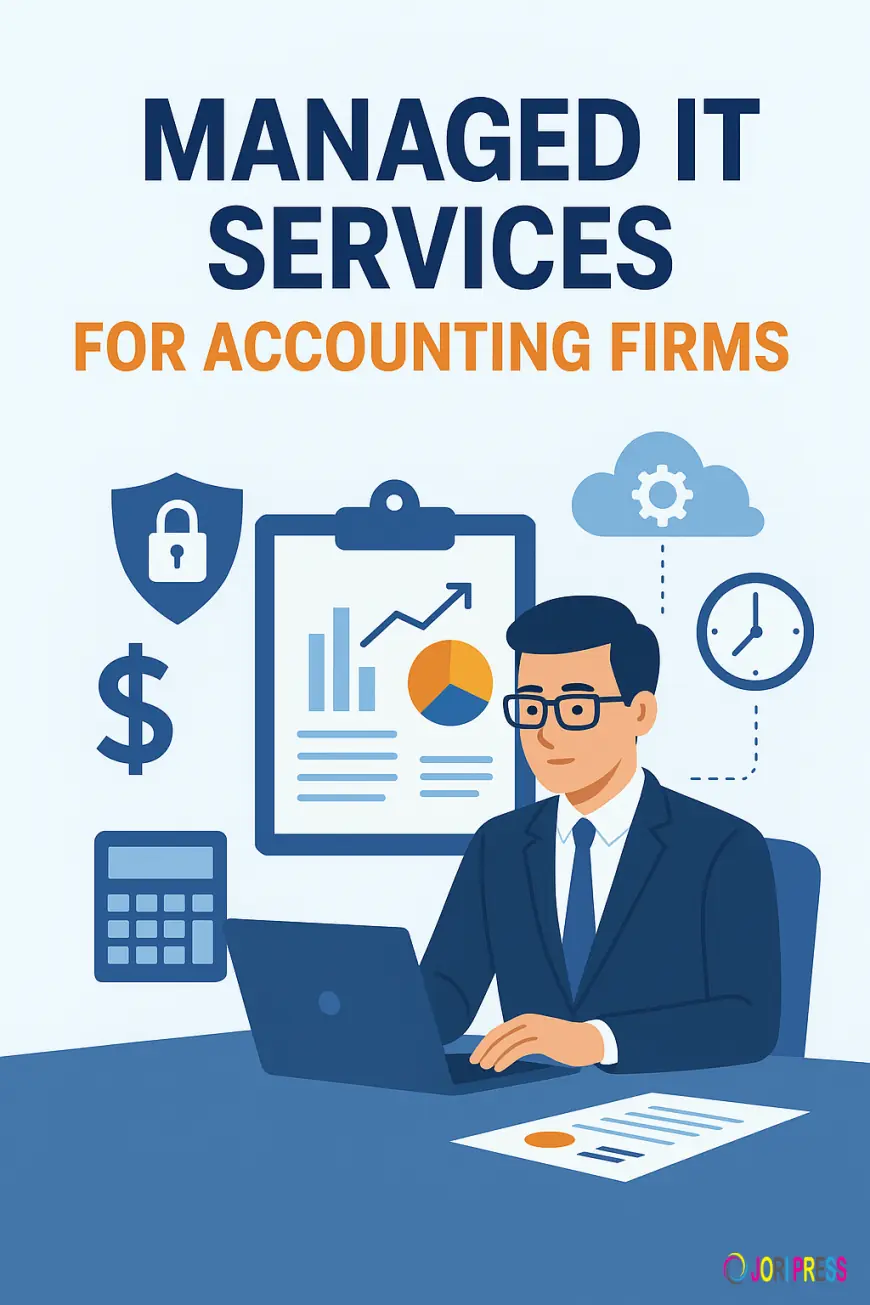Managed IT Services for Accounting Firms
This article explores how managed IT services help accounting firms strengthen security, streamline workflows, and stay compliant with industry regulations.

In accounting, precision and trust are everything. Firms handle sensitive financial data, work with tight deadlines, and must stay compliant with regulations—so when technology falls short, the consequences can ripple far beyond minor inconvenience. Managed IT services offer accounting firms a way to outsource their IT operations to specialists who understand the stakes. By doing so, firms can focus on financial analysis, client relationships, and advisory work while leaving infrastructure, security, and support in capable hands.
In this article, we’ll unpack what managed IT services look like for accounting firms, what they encompass, the advantages they bring, and what to watch for when choosing a provider.
What Are Managed IT Services for Accounting Firms?
Managed IT services means hiring an external provider (commonly an MSP—Managed Service Provider) to take over ongoing management, monitoring, maintenance, and support of your IT systems. For accounting firms, this includes everything from securing client financial data, network infrastructure, backups, helpdesk support, to specialized accounting-software upkeep and compliance.
Instead of reacting to IT failures, managed services are proactive: constant monitoring, regular updates & patches, and readiness to scale as workloads grow.
Key Services Accounting Firms Usually Need
Below are some of the core services that are especially important for accounting businesses:
- Network Security & Cyber Protection
Use of firewalls, intrusion detection/prevention, end-point protection, encryption. Employee training on phishing and best practices to guard sensitive financial and personal data. - Compliance & Regulatory Support
Ensuring IT systems align with regulations like SOX, GDPR, or other local privacy and financial‐reporting laws. Audit trails, secure storage, role-based access, documentation for audits. - Data Backup & Disaster Recovery
Regular backups stored securely offsite or in the cloud. Well-tested recovery plans to restore data and systems with minimal downtime. - Remote Monitoring & Management (RMM)
Tools that constantly monitor servers, applications, network health, and proactively detect issues before they become outages or slowdowns. - Help Desk & Technical Support
Responsive support for staff when technology isn’t cooperating: software bugs, connectivity issues, hardware failures. Especially important during busy periods like tax season. - Cloud Services & Collaboration Tools
Cloud storage, virtual desktops or cloud-based accounting software which enable remote work, real-time collaboration, ease of access. Integration, security, compliance become important here. - Software Management & Integration
Ensuring accounting tools (Bookkeeping, Audit, Tax tools) are up-to-date, compatible with other systems, patched, and integrate with document management or reporting tools. - Business Continuity Planning
Beyond just backups—ensuring that in case of major disruptions (natural disasters, cyberattack, system failures), accounting operations can continue or quickly resume without severe damage.
Benefits for Accounting Firms
Adopting managed IT services offers many tangible benefits for accounting firms, including:
- Enhanced Security and Trust
Because accounting includes handling confidential client financial info, strong IT security boosts trust, reduces legal/regulatory risk. - Reduced Downtime & Disruptions
Proactive monitoring and quick support lessen the chance that tech issues interrupt work—especially during busy seasons. - Cost Predictability
Instead of surprise IT repair bills or emergency costs, firms can budget monthly or yearly predictable IT service fees. - Scalability
Firms growing in client base, staff or services can scale their IT infrastructure without having to build from scratch. - Efficiency & Productivity Gains
When systems are reliable, collaboration tools work, software is integrated and updated, staff spend less time fighting tech issues and more time focusing on client service.
Things to Look Out for When Choosing a Provider
To get the most from managed IT services, accounting firms should consider:
- Relevant Experience
MSPs with prior work in accounting firms who know the software, compliance demands, tax season pressure. - Strong Security & Certifications
ISO 27001, SOC 2, or equivalents. Certifications or practices for encryption, access control, audits. - Clear SLAs (Service Level Agreements)
How fast will they respond, what uptime guarantees are there, escalation paths, responsibilities. - Proactive vs Reactive Approach
Prefer providers who offer 24/7 monitoring, preventative maintenance, rather than only responding after failures. - Flexibility & Scalability
Ability to adjust resources up/down during peak demands, integrate new tools as needs evolve. - Disaster Recovery & Business Continuity
Must have clear and tested plans for disaster response and data recovery.
Conclusion
For accounting firms, managed IT services are more than just tech support—they’re a strategic investment. They enable firms to protect sensitive data, comply with regulation, maintain seamless operations during busy times, and scale as needed—all while allowing accountants to focus on what they do best: delivering accurate financial services and advisories to clients.
By selecting the right provider—one with industry-knowledge, solid security, proactive support, and reliable recovery planning—accounting firms can strengthen their technology backbone and build resilience, trust, and competitive advantage.
What's Your Reaction?
 Like
0
Like
0
 Dislike
0
Dislike
0
 Love
0
Love
0
 Funny
0
Funny
0
 Angry
0
Angry
0
 Sad
0
Sad
0
 Wow
0
Wow
0















































